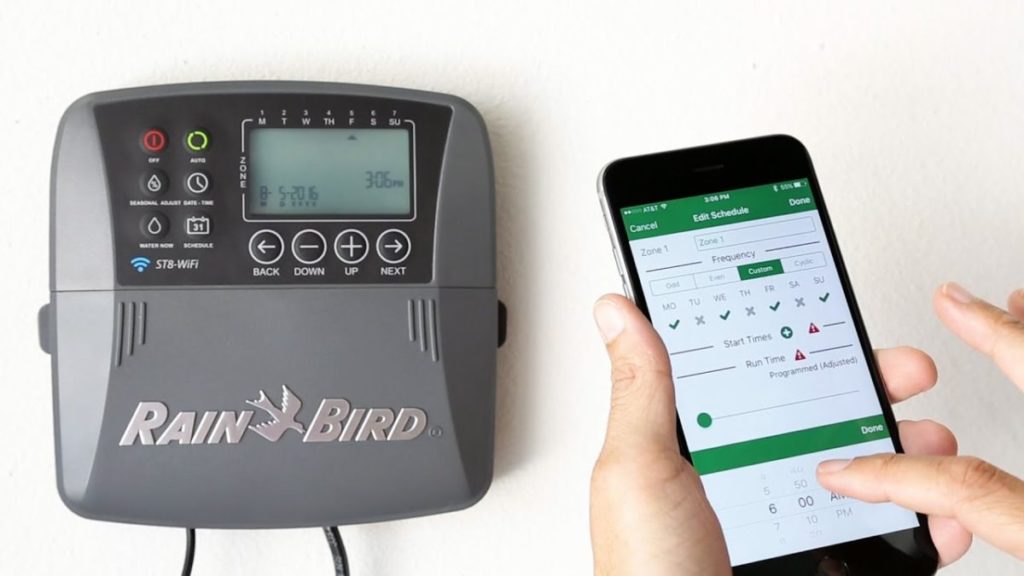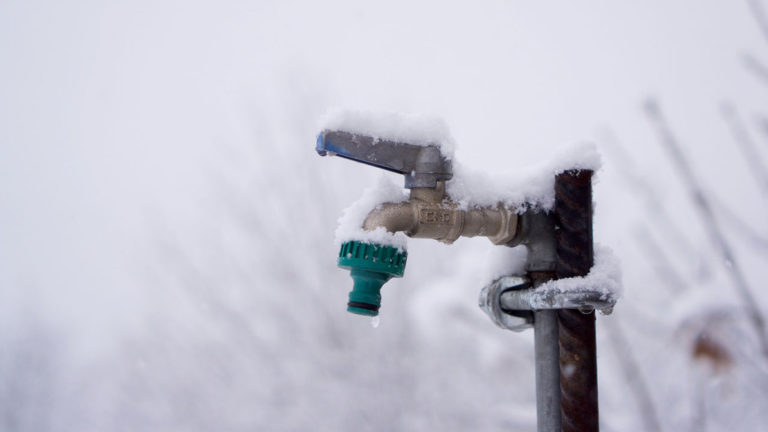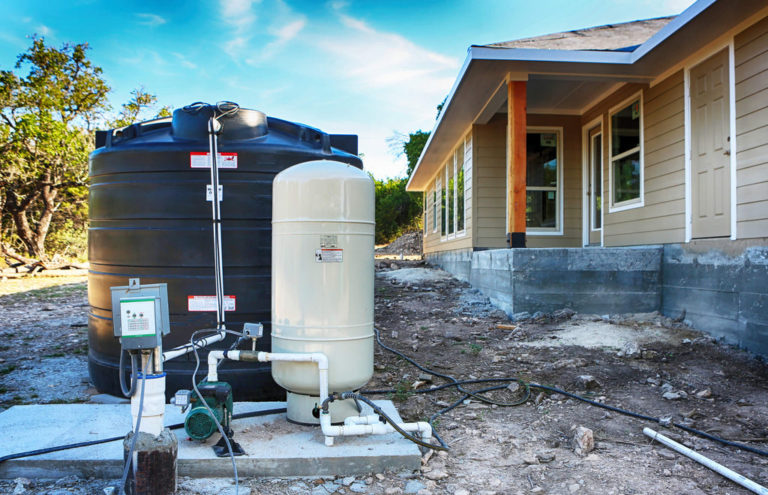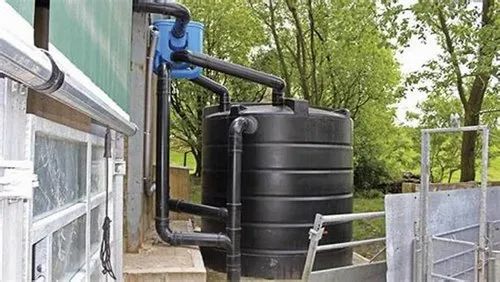As water conservation becomes increasingly important, homeowners and businesses are looking for effective ways to reduce their water usage.
One solution gaining popularity is the use of smart irrigation controllers.
These advanced systems optimize irrigation schedules based on real-time weather data, soil moisture levels, and other factors to ensure efficient water distribution while maintaining healthy plant growth.
With smart irrigation controllers, you can save up to 30% on your water bill while ensuring a lush and vibrant landscape.
We’ll explore the benefits of smart irrigation controllers and provide actionable tips for maximizing water efficiency in your garden or lawn.
Adjust watering schedules based on weather conditions
Smart irrigation controllers can adjust watering schedules based on local weather conditions, such as rain, humidity, and temperature. This helps to ensure that your lawn and plants are only receiving the amount of water they need, when they need it.
These controllers use real-time data from weather stations or online weather services to adjust watering schedules accordingly.
For example, during rainy or overcast weather, the controller can reduce watering schedules to minimize wasteful water usage.
Similarly, during hot and dry weather, the controller can increase watering schedules to ensure that your lawn and plants receive adequate hydration.
The controller can also adjust watering schedules based on humidity levels, soil moisture, and other factors to ensure that your lawn and plants are receiving the right amount of water at the right time.
By adjusting watering schedules based on weather conditions, smart irrigation controllers can help you save water and money while also promoting healthy plant growth.
Use soil moisture sensors
Soil moisture sensors can help smart irrigation controllers determine when your lawn and plants need water. These sensors can measure the moisture level in the soil and adjust watering schedules accordingly.
Soil moisture sensors are a valuable tool for smart irrigation controllers, allowing them to precisely determine when your lawn and plants need water.
These sensors measure the moisture level in the soil, providing real-time data that can be used to adjust watering schedules accordingly.
By continuously monitoring soil moisture, smart irrigation controllers can optimize water usage, ensuring that your lawn and plants receive just the right amount of water, neither too little nor too much.
This not only saves water but also promotes healthy plant growth and reduces the risk of overwatering, which can lead to a host of problems including mold, mildew, and root rot.
Soil moisture sensors can be integrated with weather forecasts to anticipate changes in moisture levels and adjust watering schedules accordingly, providing a comprehensive and efficient irrigation system for your lawn and plants.
Use evapotranspiration (ET) data
ET data can help smart irrigation controllers determine the amount of water your lawn and plants need based on the local climate and weather conditions. ET data is a measure of the amount of water lost through evaporation and transpiration.
Evapotranspiration (ET) data is a valuable tool for smart irrigation controllers to optimize water usage and ensure your lawn and plants receive the right amount of water.
ET data measures the amount of water lost through evaporation and transpiration, providing insights into the actual water needs of your landscape.
By using ET data, smart irrigation controllers can adjust water schedules based on local climate and weather conditions, ensuring your plants receive the appropriate amount of water without overwatering or underwatering.
This results in a healthier and more sustainable landscape.
For example, during hot and dry weather, ET data may indicate that your plants require more water, while during cool and wet weather, they may need less water.
By leveraging ET data, smart irrigation controllers can provide precise irrigation management, helping to conserve water and reduce waste.
Use rain sensors
Rain sensors can detect when it has rained and automatically shut off the irrigation system. This helps to prevent overwatering and conserve water.
Using rain sensors to detect rain and automatically shut off irrigation systems is an effective method to conserve water and prevent overwatering.
These sensors can detect even small amounts of rain, and when they do, they send a signal to the irrigation controller to shut off the system.
This ensures that the lawn or garden is not watered when it does not need it, which helps to save water and reduce waste.
By using rain sensors, you can optimize your irrigation system and ensure that your lawn or garden is getting just the right amount of water, without any excess.
Rain sensors can help to prolong the life of your irrigation system by reducing the amount of wear and tear it experiences from constant use.
Overall, using rain sensors is an easy and effective way to conserve water and optimize your irrigation system.
Use freeze sensors
Freeze sensors can detect when the temperature drops below a certain threshold and automatically shut off the irrigation system. This helps to prevent damage to your lawn and plants during freezing temperatures.
To safeguard your lawn and plants from freezing temperatures, consider incorporating freeze sensors into your irrigation system.
These sensors can detect when the temperature drops below a certain threshold and automatically shut off the irrigation system.
By doing so, you can prevent the risk of frozen water causing damage to your lawn and plants.
This feature is especially useful for areas with cold climates where freezing temperatures are common.
By installing freeze sensors, you can rest assured that your irrigation system will not continue to water your lawn and plants during freezing temperatures, potentially causing harm.
Freeze sensors can also provide you with an early warning system, alerting you to approaching freezing temperatures so you can take necessary precautions to protect your lawn and plants.
Overall, the use of freeze sensors is an effective and reliable way to safeguard your lawn and plants during freezing temperatures.
Monitor water usage
Smart irrigation controllers can provide real-time data on water usage, which can help you identify areas where you can improve water efficiency.
By monitoring water usage in real-time with smart irrigation controllers, you can gain valuable insights into your water efficiency and identify areas for improvement.
These controllers can track water usage patterns and provide data on consumption, which can help you identify leaks, over-watering, and other issues that may be wasting water.
Smart irrigation controllers can adjust watering schedules and delivery amounts based on weather conditions, soil moisture levels, and other factors to optimize water usage and minimize waste.
With this information, you can make informed decisions to optimize your irrigation system and reduce your overall water usage, leading to cost savings and a more sustainable landscape.
By monitoring water usage and identifying areas for improvement, you can take proactive steps to reduce your environmental footprint and ensure a healthy, thriving landscape.
Set schedules for specific plants
Smart irrigation controllers can provide schedules for specific plants based on their watering needs. This ensures that each plant is receiving the appropriate amount of water.
Smart irrigation controllers can provide schedules for specific plants based on their watering needs, ensuring that each plant is receiving the appropriate amount of water.
For example, if you have a tomato plant that requires more water than your basil plant, you can set a schedule that provides more water to the tomato plant during the peak growing season.
This can be done by selecting the specific plant you want to water and specifying the frequency and duration of watering.
Some smart irrigation controllers can also take into account factors such as weather and soil type to provide even more accurate and customized watering schedules.
By setting schedules for specific plants, you can ensure that your plants are receiving the exact amount of water they need to thrive, while also conserving water and reducing waste.
Remotely monitor and control your irrigation system
Smart irrigation controllers can be controlled remotely through a mobile app or web interface. This allows you to monitor your irrigation system and make adjustments from anywhere, at any time.
With a smart irrigation controller, you can remotely monitor and control your irrigation system from anywhere, at any time, through a mobile app or web interface.
This feature allows you to ensure that your lawn and garden are receiving the optimal amount of water, even when you’re not physically present.
You can easily adjust the schedule, flow rate, and other settings to optimize your irrigation system’s performance.
Many smart irrigation controllers come equipped with sensors that can detect weather conditions and adjust the irrigation schedule accordingly, so you can rest assured that your lawn and garden will receive the right amount of water, even in rainy or drought-prone conditions.
Whether you’re at work, on vacation, or simply too busy to tend to your lawn and garden, remote monitoring and control allows you to stay on top of your irrigation system and ensure that it’s always functioning at its best.
Want More? Dive Deeper Here!
Hey there! If you’re the type who loves going down the rabbit hole of information (like we do), you’re in the right spot. We’ve pulled together some cool reads and resources that dive a bit deeper into the stuff we chat about on our site. Whether you’re just killing time or super into the topic, these picks might just be what you’re looking for. Happy reading!
- Smart Irrigation Technology: Controllers and Sensors | Oklahoma State University
- Smart Irrigation Month | Turfgrass Science
- Technology to help your sprinkler system for this upcoming year | UMN Extension
- (PDF) Effects of Wi-Fi-Enabled Smart Irrigation Controllers on Water Use and Plant Health of Residential Landscapes in the Intermountain West






